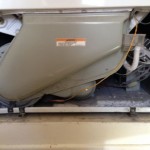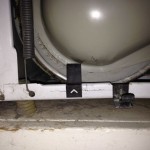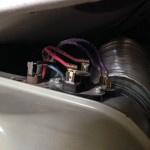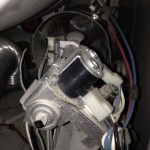Today is Day 2 of the 5 Day Gratitude challenge that was passed on to me by Dennis Dunbar, and Laura Tolladay.
The idea is to list 3 things you are thankful for, each day, for 5 days. You’re also suppose to challenge 3 people each day as well, but I completely ignored that part. You’re probably supposed to do this entirely on FaceBook, which is where I started this, but I ignored that as well preferring the writing environment of my blog. You’re also supposed to do them sequentially, day after day, but I failed at that too.
Yeah, I suck at rules. So what?
In any event, here is my second day. Considerably longer, but much more to my satisfaction.
1) Story and History
Pardon me while I get all META for a moment.
We live in a world of story. Stories surrounds us, they imbue us, they are the very thing that makes us up. If you think of words as atoms, then stories are the molecules those atoms make. They are the amino acids, vitamins, etc. that give us life and keeping of going. Stories are to humans what water is to a fish; ubiquitous, unseen, and yet utterly necessary.
Don’t believe me? Take a step back and look at your day. You wake up and your spouse/significant other/fuck-buddy-for-the-night asks you, “How did you sleep?” You respond with something like, “Pretty good. I woke up at 3:00 because the neighbor’s dog was barking, but then I went back to sleep.” This is a story. It has a beginning, a middle, and an end. It even has direction, and a point. Mind you its a bit short, and the protagonist is unstated, but no matter where you go in this world, and no matter what language you use, if you tell this story the people there will know exactly what you mean.
The you get to work and someone asks, “How was the traffic?” by which they mean “How was your journey?” You respond with a story. You might start with, “Some jerk cut me off at the Mulholland Exit…” or, “There was an accident at La Cienega…” or sometimes even, “I met the nicest lady on the bus…” but all of these are the start of a story. They are all ways of describing your experience with you as the protagonist. We don’t just say a string of events like an ersatz grocery list, we stitch those events together into a story with ourselves playing the leading role.
At every point in your day, if you are communicating with another human, you are using story.
Ever since my mother started reading to me at a young age, I have always loved stories. Big ones, little ones, jokes and novels. Large characters, and small. Smart stories and dumb ones. Spoken, written, or acted, they’re all one to me. But I didn’t really understand how ubiquitous stories are to us until I started learning to write them.
I remember clearly the first time I was able to step back from a story and look at it from above, to see a story in its constitute parts rather than be caught up in the narrative. To see the meta story. It was at a party, at our home. I was somewhere in my middle school years, 7th – 9th grade. My mother had some friends over, although I cannot recall specifically who was there. All I remember is that she had had a glass of wine (or two), and was telling a story.
For those that don’t know her, my mother likes to tell a certain kind of story. In her stories she is always the protagonist, and the antagonist is always an idiot. Each of these stories starts with a normal conversation that somehow goes wrong. The antagonist has decided to block my mother (for any of a handful of reasons), and attempts to frustrate her from her goal. These stories always end with my mother battling this lesser opponent, and brutally vanquishing them using words alone. They always end with her moving on to her goal, no longer impeded by her foe who has left the field in disgrace.
Over the years I have heard literally hundreds of these stories. They are amazingly consistent to her. I don’t think I have ever visited her for longer than 5 minutes without hearing one. So its no surprise that she was telling this kind of story on that evening. The thing that made that evening unique to me was that suddenly, while she was knee deep in the story, I suddenly knew how it would end. It was as if someone had pulled back the curtain of the narrative, and shown me the Meta story that lay within. Until that moment I had no understanding that each of her stories, for they were always slightly different and populated with new people, were in fact simple variations of the same one. After that point, I could never hear one with also hearing the others resonating inside, like verses of a song sung over the top of one another.
I’ve always enjoyed people watching, but it was when I started to write stories that I understood why. People to me are stories. They are walking, breathing, animated stories. I don’t kneed to know the person (in fact, meeting them often ruins the story I’ve made for them) I just need to look at them, hear them, smell them, and their story pops into my head automatically. While riding the bus, or sitting out on a street corner watching a crowd, these little stories will pop into my head like the bubbles in champaign, and they fizz and effervesce quite nicely. Most of these stories will pass me by without much attention on my part, but occasionally I run across one so interesting or so outlandish that I have to know more. I need more detail, or I need to find the end. So I’ll talk to that person trying to gently capture their story with the butterfly net of my mind. It is these stories that often end up becoming characters in my own stories. They are wild stories, captured in their native environment, and tamed by language into something I can use.
Many people don’t know that the word Story and the word History both come from the same Greek root. If you read the first history book by Herodotus, you can’t escape this conclusion. Herodotus was happy to mix story and history into one big mess, leaving such ideas as “factual representation” or “the line between direct knowledge and hearsay” to be discovered later on. To me, history has always been about story, which is why I’ve liked it as a subject for so long.
2) Language (more specifically the English Language):
Yesterday Teri and I took Trevor to a fair near us called the Sylmar Olive Festival. There were a variety of reasons for going, but the primary one was to see the Legion VI Victrix camp. You see our son is what his friends call a Romei: That is a fan of Roman history, but the term is used to include pretty much all forms of ancient history. Trevor got this way from playing the Total War video games series (think of the board game Risk, but on steroids and with a heavy emphasis on the ancient world), but to be fair a certain amount of his inclination probably comes from my own interest in the ancient world and military history.
So while we were there that night, hanging out with the sixth Legion like groupies after a rock concert, one of the guys (Matt) was talking about doing a show for an upcoming Greek festival in ancient Greek armor. Since he didn’t know the Greek names for the armor he started listing them in the language he was used to, Latin. With the exception of a few English words, it was a conversation that could have happened in AD 100 just as much as today. It was also a very typical Roman way of looking at the world, Rome being known for taking ideas from other cultures, refining them slightly, slapping on a Latin name, and parading them about as their own. Mind you, we’d been standing around a group of people dressed to the nines like Roman Legionaries in a Roman camp with practically everything within reach designed to look authentically Roman, but it was this turn of conversation that struck me as the most authentic part of the experience. For some reason this tickled my funny bone, and I started to laugh. Matt looked at me inquisitively, not knowing what he said that was funny, so I tried to explain why it was funny to me, but found it a bit of a challenge.
Language is like that for me. Its not just a tool to communicate, or a way to express my needs. Language to me is also fun, and funny. A veritable playground or words, ideas, puns and jokes, that surround us like sparkling diamonds, and tart up an otherwise dull and roughed up world. Language is not just something I do or use, a tool like a hammer or a saw, it is a source of fun and humor in its own right.
I don’t think a day goes by without me making up a pun, or laughing at a turn of phrase, or marveling at a line of poetry. Language can pierce my breast like an arrow and go right through my heart, or it can lift me up when I’m feeling low. It is both my first love and a big glorious sloppy mess of a pig pen in which I like to wallow. Its no accident that Language is the first thing I turn to when I start to feel depressed. Language is the North Star for me, it remains fixed in my heavens always directing me towards my home and away from the rocky shores.
3) Death
For as long as I can recall, I’ve always been fascinated about death. I can’t imagine I’m particularly unique in this regard either. It has never been about the death in a personal sense, I’m not into that kind of pain, but more about death in the abstract. Death as a thing, a cultural construct.
We all seem to fear death. We as in society. This always struck me as silly. One cannot stop death, any more than one can stop life. They are twins, life and death. Each one dependent upon the other. You cannot talk about one without eventually running into the other.
Mind you, I’m not the least bit interested in dying myself (thank you, but I have a lot on my plate right now, and I’m pretty sure that plate will never empty), nor do I wish death upon others, even my enemies. Especially my enemies. But death does happen, and we do have to deal with it, even if dealing with it means denying it exists like a child screwing her eyes tight in a dark room and reciting over and over, “there are no monsters, there are no monsters.”
But death to me has also become less abstract. It has become personalized.
It started when I was working on my first novel. I had an idea for a protagonist who was cursed with a super power he didn’t want. Without killing anyone he somehow became the center of their death, the locus upon which their sins spun down into their eventual and terrible end. A very literal translation of Saint Paul’s abstract, “the wages of sin are death.” Somehow I knew this guy had to be a priest, and a good man too, not some asshole who rapes children. But in creating this character I had to come up with a reason for him having this curse. I mean priests don’t suddenly become cursed for no reason, especially if they’re wearing a white hat. So it was while I was working on this part of the novel that I discovered Santa Muerte.
At first this saint Death was just another thing you put in a novel. A name, an abstract concept. Something to move the plot along. But almost immediately she stopped being an abstract and became a character herself. I could see her in my minds eye. She could appear as an old crone, or a sexy young girl, she was both the bride and the king, both dependent upon us, and our master. And always she was the great leveler. Rich or poor, saint or asshole, we all get to face her, and we all get the same experience. We all must die.
Since then she has become the center of a group of short stories I hope to eventually finish and publish. They all revolve around death because death is not only the period at the end of our live’s sentences, but death is also a force for change.
Back when I was a Christian there was a common phrase that went, “Whenever God closes a door, he opens a window.” The idea being that the ending of one thing is also the beginning of another. Its a conceit which I believe to be true, although it usually takes a large dollop of optimism to see it. What I discovered in writing about death, in personifying death in my stories, is that she indeed is the grand opener of windows. Death closes one life, but also opens another, or part of another. One begets the other. Or more importantly, you cannot have one without the other. Like I said way back at the beginning of this essay, death and life are inseparably paired. They are the yin and yang of our existence.
To move away from the abstract here for a moment, I’d like to talk about death in the personal. When my father died, and a few years later my father-in-law, it ripped a curious hole in my character. I had the strongest feeling that in the circus of my life, the high-wire act had suddenly torn away its safety net, yet I was expected to keep up the same demanding performance schedule. It was a very unsettling feeling. I counted on these men, even if I rarely called upon them. For some reason they were still buried in my foundation. Once they were gone I was left feeling their absence painfully. And yet, there was nothing I could do. Short of putting them in stories, I could not bring them back from the grave, and I had a sense that even if I could resurrect them in this manner it would not end well for anyone.
So I did what we all do when facing grief. I moved on. I kept going. I had a business to run, a family to look after, bills to pay, taxes due. I wrote stories, I talked to friends, I saw movies, and in private with just my wife I cried a lot. We both did.
But a funny thing happened. A door closed, and a window opened. I became stronger. I grew. Somehow I gained a sense of self I could not have done with these great men around. Their shadows cast too far, their greatness was too much. In short, I became a better man.
In any forest, when a large and mature tree finally dies, it leaves an opening in the canopy which allows more sunlight to fall to the smaller trees below. This extra sunlight causes a burst of growth, as the smaller trees suddenly expand in size until they grow to fill the available open space. At the same times the old tree slowly decomposes, becoming the nutrients upon which the new trees use to grow. This is exactly what happened to me (although really it was to both of us). We grew, we became better. We literally sucked the nutrients from the bones of our ancestors, and grew both in size and in stature.
Mind you, this is nothing I would wish upon anyone. It was immeasurably painful, and the process was at times excruciating. But we did grow. And with its passing I cannot help but feel that this step was an important one. That one cannot really know the full extent of their character unless and until they go through this crucible.
One day we will pass, and the ideas and culture which we hold dear will pass on like nutrients to our children and our children’s children. This is the way of Death. It is the way of Life.











